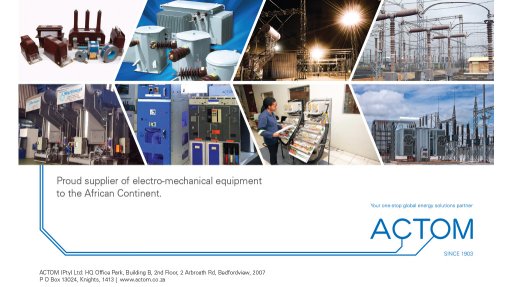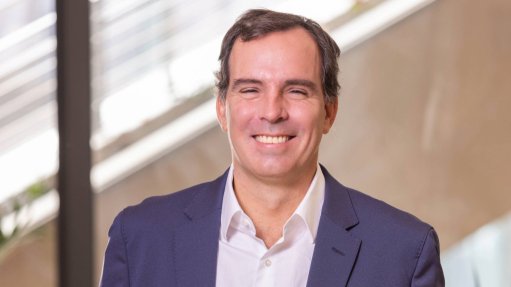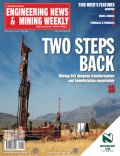R&D powers better healthcare for everyone, from discovery to delivery
This article has been supplied and will be available for a limited time only on this website.
By: Bada Pharasi - CEO of the Innovative Pharmaceutical Association South Africa (IPASA)
Achieving universal healthcare for billions across Africa is an ambitious and vital goal; one that will face challenges but must be pursued. To ensure equitable access to health services in the most meaningful and impact ways to improve the lives of patients, Bada Pharasi, CEO of the Innovative Pharmaceutical Association South Africa (IPASA), shares how the pharmaceutical industry supports the health system to advance by developing, testing and producing new medicines globally for local impact.
South Africa is a leader in research and development (R&D) in Africa, according to a study on the impact of innovative multinational pharmaceutical companies operating in the country.*
Beyond scientific breakthroughs, the true value of research and development (R&D) innovation lies in providing affordable, effective medicines, diagnostics and treatments to patients who need them most.
However, over the past few decades, the local manufacturing and production landscape of medicines (including delivery mechanisms and logistics) has declined, resulting in a significant rise in medicine imports.
What does this mean for patients? South Africa is excellent at medical research – among the best in Africa – especially when it comes to discovering new ways to treat illnesses that are specific to African genetics and conditions.
While local medicine manufacturing has declined over the years, increased imports have played a vital role in ensuring continued access to a broader range of innovative treatments. Despite South Africa’s strong medical expertise and understanding of patient needs, affordability and accessibility remain challenges for many. This underscores the importance of collaborative solutions, including responsible importation and technology transfer, to bridge gaps in access and deliver better health outcomes.
Investment in clinical trials and innovation
Between 2016 and 2021, more than R2.95 billion was invested in clinical trials. Over 382 trials were active at the time, with over 100,000 patients participating. These trials didn’t just test, they treated as well, providing early access to life-saving medicines and generating data that shapes global standards.
South Africa also boasts a world-leading R&D-to-sales ratio of 21.7%, and a robust drug development pipeline including over 60 tuberculosis medicines and over 4,000 therapies for non-communicable diseases like cancer and diabetes.
While South Africa currently sources most of its medicines through imports, this presents a valuable opportunity to complement existing supply channels by strengthening local manufacturing capacity, ultimately contributing to a more robust and resilient healthcare system.
Research and development as a cornerstone
R&D in all its forms, from early-stage drug discovery to clinical research and policy review and development, is not just a response to the demand for universal healthcare. It is also a key driver of that goal. Innovations in therapies, diagnostics and vaccine development, along with testing and validation through clinical trials, are essential to meeting the health needs of Africa’s diverse population.
While significant investment is needed upfront, long-term benefits are limitless and frankly, critical. It opens the door to developing, building and distributing pharmaceutical solutions right where they are needed, with local oversight, insight and agility.
By encouraging meaningful collaboration between multinational pharmaceutical companies and local manufacturers, particularly through technology transfer. South Africa has an opportunity to co-create a more resilient and self-sufficient healthcare system. This approach not only supports local production of essential medicines but also strengthens the region's capacity to serve both its own population and the broader African continent. In doing so, we lay the groundwork for a more sustainable, innovation-driven pharmaceutical sector that ultimately improves patient outcomes.
Putting the patient at the centre
Africa is the cradle of humankind and home to the broadest genetic diversity on the planet. This diversity matters in medicine. Pharmacogenomics, the study of how genes affect a person’s response to drugs, shows that medicines developed and tested elsewhere need additional testing to ensure treatments are safe and effective for African populations through robust local data. IPASA’s continued investment in local clinical trials plays a vital role in building this evidence base, ultimately supporting better health outcomes and ensuring that innovative medicines are tailored to meet the continent’s unique needs.
Local development is especially critical for diseases that are more widespread in Africa, such as malaria, neglected tropical diseases, tuberculosis and AIDS – conditions that often receive less investment from global pharmaceutical companies due to low returns.
By focusing on local R&D, pharmaceutical companies can tailor treatments to genetic profiles, traditional knowledge, and regional needs, ensuring better safety, more effective outcomes, and higher patient trust. South Africa has the expertise, infrastructure, and ambition to lead the continent in pharmaceutical R&D, but real progress requires strong partnerships across sectors government, academia, the private sector and civil society.
If we want to build a future where healthcare is accessible and affordable for all Africans, we must forge partnership s that will empower Africa to innovate for itself, produce medicines that reflect its realities, and deliver healthcare that truly puts the patient first.
Comments
Press Office
Announcements
What's On
Subscribe to improve your user experience...
Option 1 (equivalent of R125 a month):
Receive a weekly copy of Creamer Media's Engineering News & Mining Weekly magazine
(print copy for those in South Africa and e-magazine for those outside of South Africa)
Receive daily email newsletters
Access to full search results
Access archive of magazine back copies
Access to Projects in Progress
Access to ONE Research Report of your choice in PDF format
Option 2 (equivalent of R375 a month):
All benefits from Option 1
PLUS
Access to Creamer Media's Research Channel Africa for ALL Research Reports, in PDF format, on various industrial and mining sectors
including Electricity; Water; Energy Transition; Hydrogen; Roads, Rail and Ports; Coal; Gold; Platinum; Battery Metals; etc.
Already a subscriber?
Forgotten your password?
Receive weekly copy of Creamer Media's Engineering News & Mining Weekly magazine (print copy for those in South Africa and e-magazine for those outside of South Africa)
➕
Recieve daily email newsletters
➕
Access to full search results
➕
Access archive of magazine back copies
➕
Access to Projects in Progress
➕
Access to ONE Research Report of your choice in PDF format
RESEARCH CHANNEL AFRICA
R4500 (equivalent of R375 a month)
SUBSCRIBEAll benefits from Option 1
➕
Access to Creamer Media's Research Channel Africa for ALL Research Reports on various industrial and mining sectors, in PDF format, including on:
Electricity
➕
Water
➕
Energy Transition
➕
Hydrogen
➕
Roads, Rail and Ports
➕
Coal
➕
Gold
➕
Platinum
➕
Battery Metals
➕
etc.
Receive all benefits from Option 1 or Option 2 delivered to numerous people at your company
➕
Multiple User names and Passwords for simultaneous log-ins
➕
Intranet integration access to all in your organisation





















